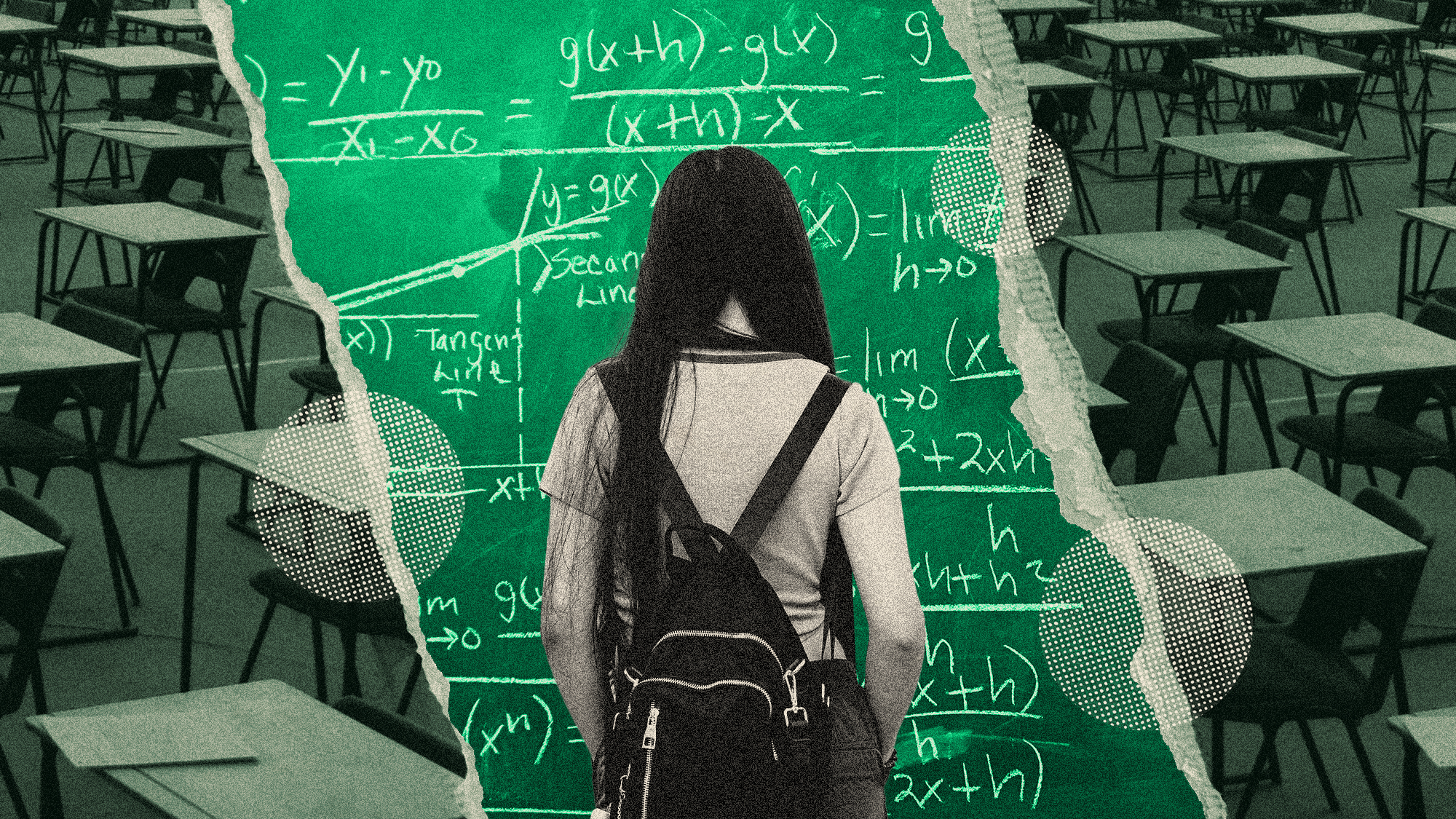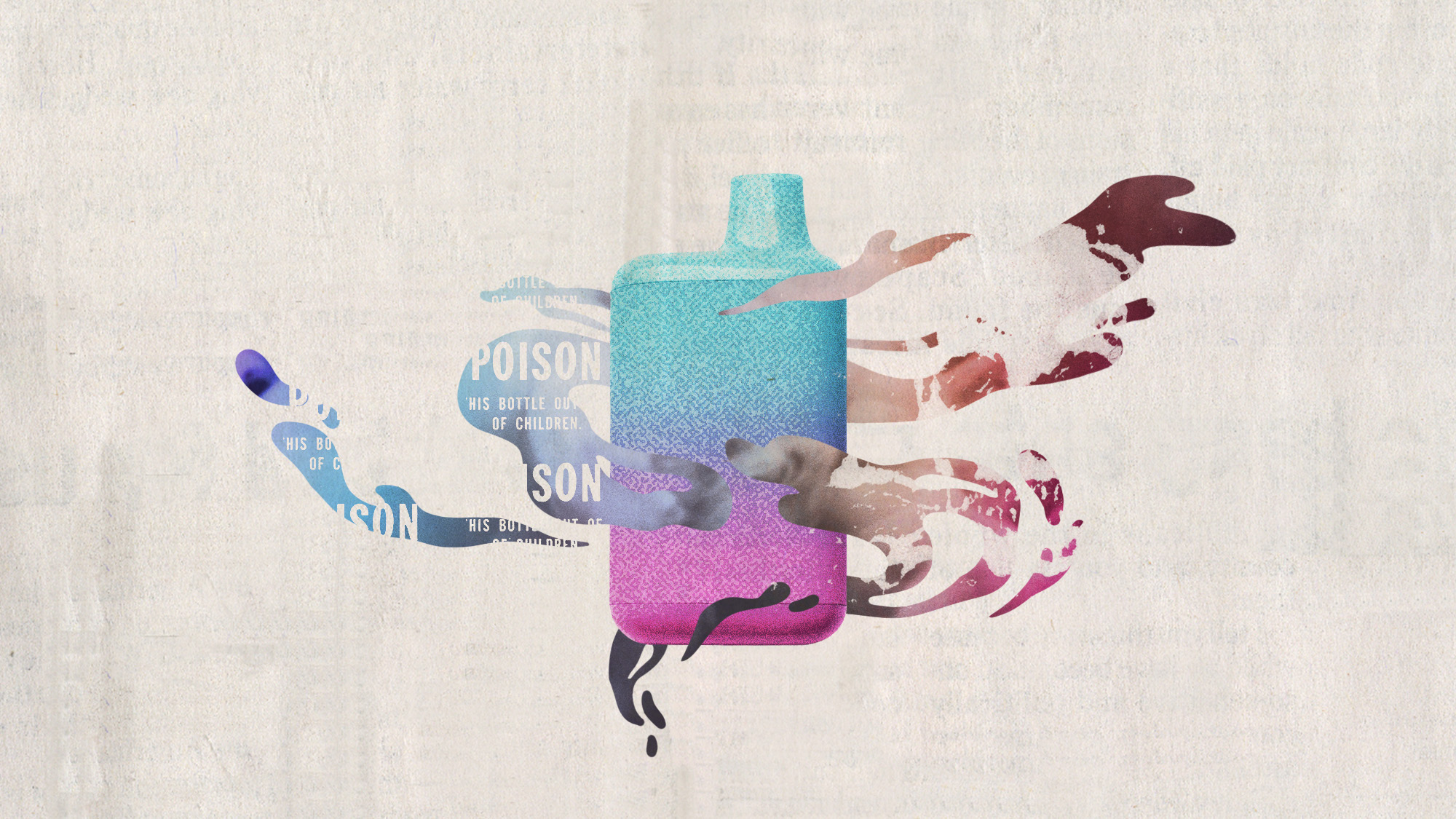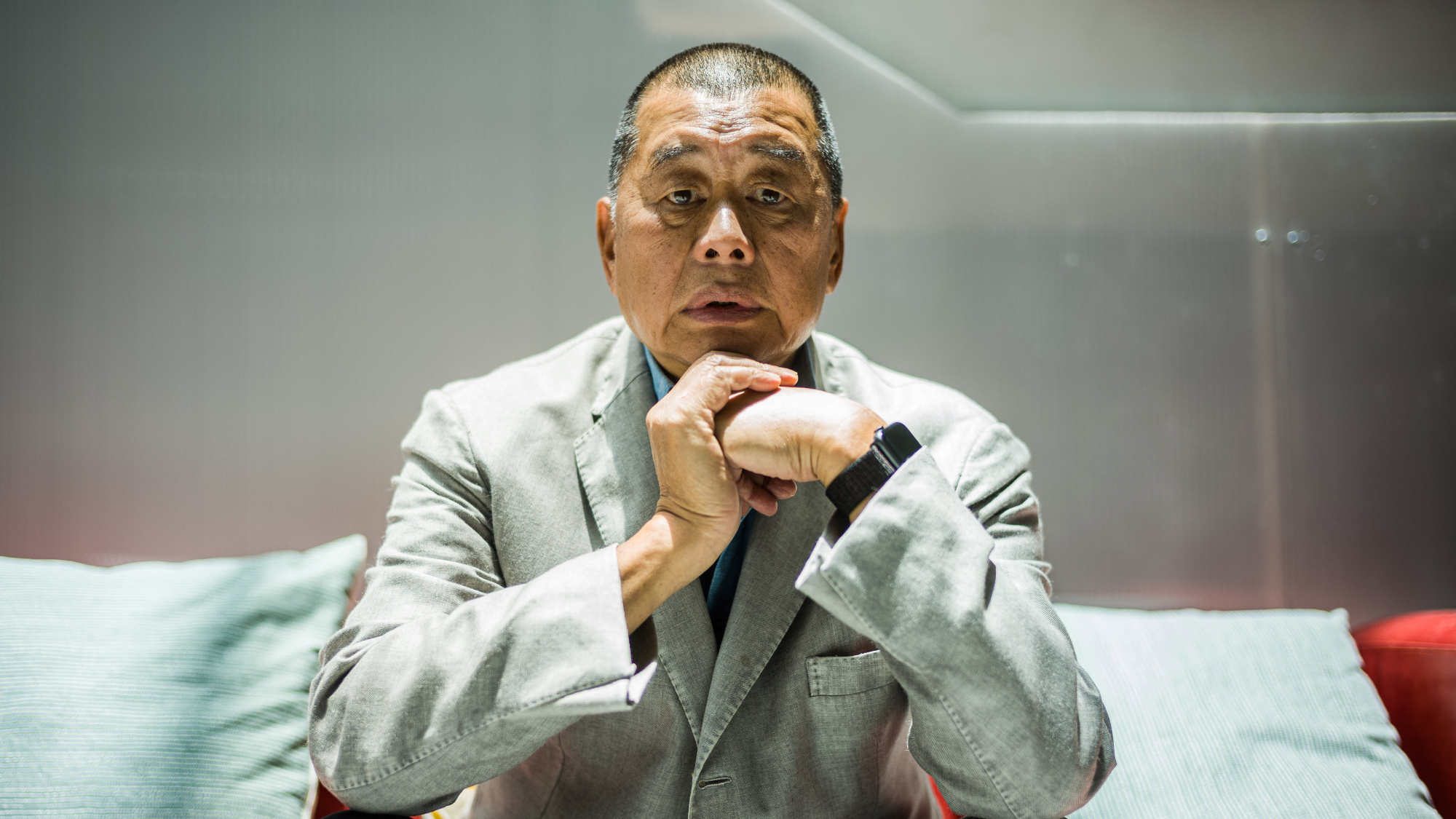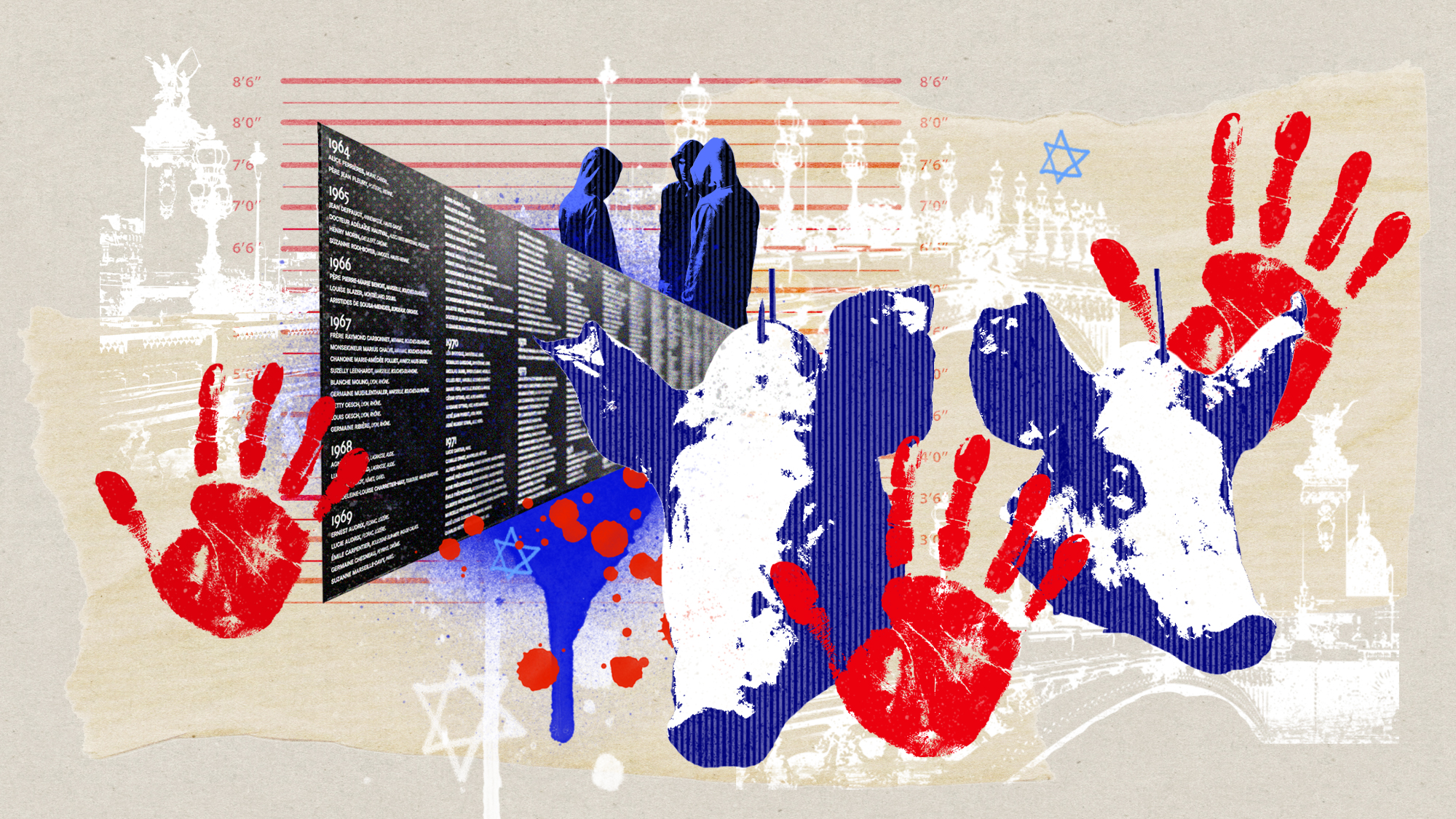The teenage 'maths prodigy' who turned out to be a cheat
Jiang Ping defied expectations in a global competition but something wasn't right

A free daily email with the biggest news stories of the day – and the best features from TheWeek.com
You are now subscribed
Your newsletter sign-up was successful
A 17-year-old girl hailed as a "genius" for her score in an international maths competition in China was actually a cheat, said organisers.
Jiang Ping hit the headlines in June when she became the first finalist from a "lowly vocational school", said the BBC, but "months of scepticism" over her "stellar results" led to an investigation and a shocking discovery.
'Collaborative cheating'
There was surprise and excitement when the fashion design student came 12th in the qualifiers of the annual international maths contest run by Chinese e-commerce giant Alibaba because nearly all of the 800 finalists came from elite universities.
The Week
Escape your echo chamber. Get the facts behind the news, plus analysis from multiple perspectives.

Sign up for The Week's Free Newsletters
From our morning news briefing to a weekly Good News Newsletter, get the best of The Week delivered directly to your inbox.
From our morning news briefing to a weekly Good News Newsletter, get the best of The Week delivered directly to your inbox.
Jiang was described as a "genius", said the South China Morning Post, and was "held up as an example of someone who could overcome her modest educational background to achieve major success". She outperformed other finalists from institutions such as Peking University, the Massachusetts Institute of Technology and Oxford University, and "quickly captured nationwide attention", said First Post.
Interviewed by the state-run People's Daily, she said that "learning maths is bumpy", but "every time I solve the problems, I feel quite happy".
But other finalists raised questions over apparent discrepancies in her performance, including an unfamiliarity with "mathematical expressions and symbols", and penned a joint letter to the organising committee.
The letter claimed there was "evidence" of potential fraud, including a theory of "collaborative cheating". The organising committee investigated and found that Jiang had violated competition rules in the preliminary round because she was helped by her teacher, Wang Runqiu, who was a contestant himself.
A free daily email with the biggest news stories of the day – and the best features from TheWeek.com
'Disappeared Einstein'
The organisers have apologised, admitting in a statement that the episode has "exposed issues such as inadequacies in the competition format" and "a lack of rigour in supervision".
Jiang has been roundly blasted on social media in China, but some users have insisted the blame lies with her school and teacher. Although the teenager is "not innocent", one user wrote on Weibo, the "worst parties in this" are the adults who "brought this child along to do a bad deed, and let her suffer all the consequences".
Among the "cacophony" of commentary, some suspect the "harsh public scrutiny" is "rooted in social prejudice" against vocational students, said CNN.
Zhao Yong, a distinguished professor in educational psychology at the University of Kansas, told the broadcaster that Jiang may become a "disappeared Einstein" – one of the "many buried talents in China’s education system".
As for Jiang herself, she regards maths as her "Plan B," said The Beijing News, and prefers fashion design for her future study. Her teacher, Wang, has been given a warning and disqualified from teachers' awards for the year.
Chas Newkey-Burden has been part of The Week Digital team for more than a decade and a journalist for 25 years, starting out on the irreverent football weekly 90 Minutes, before moving to lifestyle magazines Loaded and Attitude. He was a columnist for The Big Issue and landed a world exclusive with David Beckham that became the weekly magazine’s bestselling issue. He now writes regularly for The Guardian, The Telegraph, The Independent, Metro, FourFourTwo and the i new site. He is also the author of a number of non-fiction books.
-
 How the FCC’s ‘equal time’ rule works
How the FCC’s ‘equal time’ rule worksIn the Spotlight The law is at the heart of the Colbert-CBS conflict
-
 What is the endgame in the DHS shutdown?
What is the endgame in the DHS shutdown?Today’s Big Question Democrats want to rein in ICE’s immigration crackdown
-
 ‘Poor time management isn’t just an inconvenience’
‘Poor time management isn’t just an inconvenience’Instant Opinion Opinion, comment and editorials of the day
-
 The fall of the generals: China’s military purge
The fall of the generals: China’s military purgeIn the Spotlight Xi Jinping’s extraordinary removal of senior general proves that no-one is safe from anti-corruption drive that has investigated millions
-
 Mexico’s vape ban has led to a cartel-controlled black market
Mexico’s vape ban has led to a cartel-controlled black marketUnder the Radar Cartels have expanded their power over the sale of illicit tobacco
-
 EU and India clinch trade pact amid US tariff war
EU and India clinch trade pact amid US tariff warSpeed Read The agreement will slash tariffs on most goods over the next decade
-
 China’s Xi targets top general in growing purge
China’s Xi targets top general in growing purgeSpeed Read Zhang Youxia is being investigated over ‘grave violations’ of the law
-
 The app that checks if you are dead
The app that checks if you are deadIn The Spotlight Viral app cashing in on number of people living alone in China
-
 Hong Kong court convicts democracy advocate Lai
Hong Kong court convicts democracy advocate LaiSpeed Read Former Hong Kong media mogul Jimmy Lai was convicted in a landmark national security trial
-
 China’s single mothers are teaming up
China’s single mothers are teaming upUnder the Radar To cope with money pressures and work commitments, single mums are sharing homes, bills and childcare
-
 France’s ‘red hands’ trial highlights alleged Russian disruption operations
France’s ‘red hands’ trial highlights alleged Russian disruption operationsUNDER THE RADAR Attacks on religious and cultural institutions around France have authorities worried about Moscow’s effort to sow chaos in one of Europe’s political centers